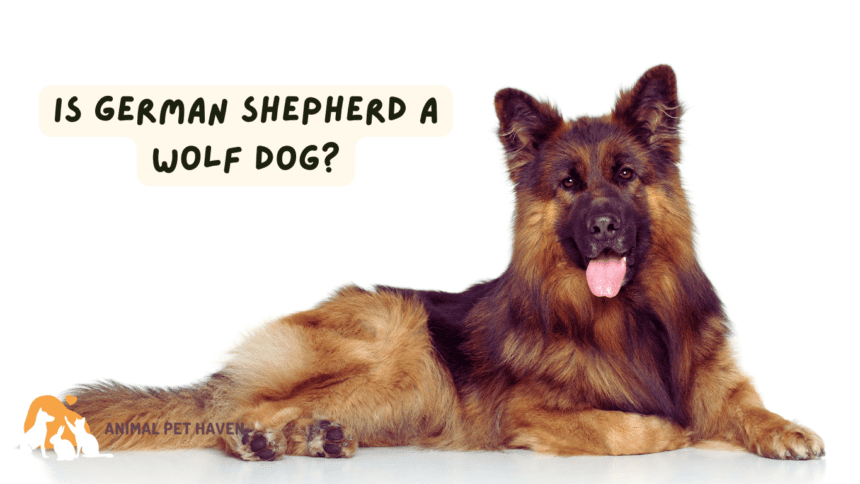Border Collies are high-energy working dogs commonly used on farms for herding. They are nimble and agile dogs, designed for quick, rapid movements.
Border Collies have medium-length, double-coated wavy hair. Their average weight is 30-55 pounds, and their height ranges from 18 to 22 inches.
Caring for Border Collies
Border Collies are ideal pets for active singles and families. They have a lively demeanor and enjoy participating in activities with both children and adults. Border Collies make excellent teammates for frisbee, hiking, and agility.
These dogs enjoy having a job, so if you don’t give them something constructive to do, they may resort to more destructive types of fun.
While Border Collies are generally strong, they can have a genetic tendency to have hip dysplasia, which is an abnormal growth of the ball and socket joint in their hips. When acquiring a Border Collie from a breeder, get papers to determine whether the puppy’s parents were evaluated for hip dysplasia by the PennHIP Foundation for Animals (OFA) or the University of Pennsylvania.
Border Collie Health Issues:
Border Collies are typically hardy dogs, although they can be genetically predisposed to a few health concerns.
Hip Dysplasia.
The most frequent medical condition in Border Collies is hip dysplasia. Hip dysplasia occurs when the hip joint’s ball does not fit properly into its socket.
This causes persistent rubbing of two bones against each other, resulting in irritation and suffering for the dog. Over time, the inflammation causes arthritis.
A comprehensive orthopedic evaluation and hip radiographs taken under anesthesia can detect hip dysplasia early on. Parents can learn about their dog’s risk for hip dysplasia through the OFA and PennHIP screenings.
Hip dysplasia, if detected early enough, can be treated surgically, with options ranging from basic surgeries to total hip replacement. For minor forms of hip dysplasia, your veterinarian can help you locate drugs and joint supplements that will improve mobility and alleviate discomfort.
Epilepsy
Border Collies may be more susceptible to epilepsy, a seizure disorder. This typically occurs between the ages of 2 and 5 years old, and anti-seizure drugs may be required to help control the disease.
There is no established explanation for why certain dogs develop epilepsy, but the Border Collie, like many other breeds, is predisposed to the ailment.
Collie Eye Anomaly
Border Collies are also susceptible to a genetic eye illness known as Collie eye abnormality.
Collie eye abnormalities can induce eye abnormalities, leading to visual impairments or blindness. The eye abnormality is present from birth and is often discovered by 5–6 weeks of age.
Although this condition can be genetically tested, there are limited therapy options for Collie’s eye abnormality. As a result, identifying reputable breeders who screen for this genetic issue and take proactive steps to keep their dogs healthy is critical.
Multidrug Resistance Mutation (MDR1)
Some herding breeds, such as Border Collies, can have a mutation in a gene called MDR1. A genetic defect present at birth can render Border Collies more sensitive to pharmaceuticals widely used in veterinary treatment, such as some antibiotics or flea and tick preventatives.
Your veterinarian can easily detect this mutation through a simple blood test. Your veterinarian will then be able to prescribe safe goods and drugs for use.
Trapped Neutrophil Syndrome (TNS)
Trapped neutrophil syndrome (TNS) is a hereditary health condition that impairs the immune system, resulting in chronic infection in affected dogs.
TNS is caused by a gene mutation that only exists in Border Collies. TNS is present from birth, and dogs with it are often smaller than their littermates and have developmental delays.
TNS is incurable and deadly, with affected dogs often living for only a few months. However, drugs and therapeutic alternatives exist to help manage the quality of life and extend life expectancy. There is genetic testing available to help breeders identify dogs that possess the TNS gene and avoid breeding them.
Neuronal ceroid lipofuscinosis (CL)
Neuronal ceroid lipofuscinosis (CL) is caused by another genetic mutation that causes neurological symptoms such as seizures, personality problems, and vision loss. Symptoms often appear between 15-20 months of age and result in a significantly shorter lifespan.
Breeders can do genetic testing to ensure that no Border Collies are bred with this defect.
What to Feed Border Collies
A Border Collie should be fed a high-quality meal with a high protein content to support their active lifestyle and muscles. A diet high in omega-3 fatty acids will also help keep their coats and joints healthy.
Consult your veterinarian to discover which diet is best for your Border Collie, but a good starting point is to select an AAFCO (Association of American Feed Control Officials)-)-approved food. AAFCO accreditation indicates that the food fulfills the nutritional standards and regulations for pet foods.
It is also critical to provide your Border Collie with food that is appropriate for his or her life stage. High-quality puppy food can be offered to puppies between the ages of 12 and 18 months. Then, transition to an adult-stage food.
How Much To Feed A Border Collie
To help your Border Collie maintain a healthy weight, follow the manufacturer’s directions and consult your veterinarian about how much to eat.
Every food has a variable caloric value, so there is no one-size-fits-all feeding recommendation for Border Collies. If you switch brands or flavors, don’t assume your pet should eat the same amount of food in their bowl. Follow the manufacturer’s feeding guidelines and consult your veterinarian to confirm the appropriate feeding amount for the new food.
Nutritional Tips for Border Collies
Border Collies may benefit from skin and joint supplements. This will help preserve their cartilage health during their various activities and encourage a smooth, lustrous coat.
Border Collie Behavior and Training Tips
The Border Collie personality and temperament.
Border Collies possess a lot of energy. As a herding breed, they require a job. Border Collies are also highly intelligent. As a result, they demand a significant amount of mental stimulation. Border Collies have been known to herd other family pets or even children, thus, training, socialization, and continuous mental stimulation are necessary.
This cerebral stimulation can come from simple games, but Border Collies also appreciate more strenuous exercises like agility, flyball, and herding competition.
Border Collies’ Behavior
Border Collies can be wary of strangers and protective of family members, so socialization with other dogs and humans in a variety of settings will be critical when they are young puppies to help them develop into healthy, well-adjusted adult canines.
The Border collies can develop harmful tendencies such as chewing or digging if they are not properly trained or provided with constant mental stimulation. Border Collies may bark excessively when bored or frustrated, so be sure to always have a suitable activity ready for them.
Border Collie Training
The Border Collie’s working dog instincts, intellect, and high energy level make training an enjoyable experience. The basic commands will be simple, and Border Collies will excel in advanced training. They are designed for high-impact exercises and easily adapt to games like frisbee and fetch.
Border Collies must begin training as soon as possible since they are destructive without adequate mental activity. Redirecting them away from their natural impulses will also be necessary to prevent them from herding young children or other pets.
Border Collie Grooming Guide
The Border Collie’s grooming requirements are average, and no extra considerations are required. Because of their high level of activity, Border Collies require less toenail cutting than other breeds.
Skin Care
Because of their double-hair coats, most Border Collies have protected, healthy skin that does not require particular skincare procedures. However, if you see excessive scratching or licking, speak with your veterinarian to ensure their skin is healthy.
Coat Care
Border Collies have medium-length, double-haired coats. They shed, but not excessively. They require regular bathing and brushing to keep their coat clean and free of mats, which can be readily accomplished at home.
Eye care
Border Collies typically require little eye care, so if you see discharge, inflammation, or injuries, contact your veterinarian.
Ear Care
It’s a good idea to inspect your Border Collie’s ears regularly. This will allow you to catch and handle wax or debris buildup from their outdoor activities. A simple ear cleaning will remove any accumulation, but if you observe discomfort, head shaking, or pawing at their ears, contact your veterinarian and schedule an appointment.
Considerations for Pet Parents
When considering a Border Collie as a companion, keep in mind that this is a working, active breed that needs plenty of mental activity, or they will become destructive rapidly. Also, ensure that the Border Collie you choose has undergone genetic testing, as this breed is more prone to inherited disorders than others.
Border Collie FAQs
Is the Border Collie an excellent family dog?
Border Collies make wonderful family dogs since they like a lot of activity. Busy families must include them in their activities, otherwise, they may become disruptive when bored.
Border Collies should be trained from an early age not to herd young children or other pets.
Are Border Collies smart dogs?
Border collies are among the sharpest dogs around. Their brilliance necessitates regular mental stimulation; nonetheless, they excel at dog sports and working dog occupations.
What are the disadvantages of a Border Collie?
Be mindful that a Border Collie is a working, active breed that needs constant mental stimulation, or it may become destructive soon. They may also bark excessively when bored or frustrated.
When selecting a Border Collie puppy, seek genetic testing that detects common hereditary problems such as hip dysplasia, Collie eye anomaly, neuronal ceroid lipofuscinosis, and trapped neutrophil syndrome.
What is a Border Collie’s natural habitat?
Border collies flourish in the fields, herding anything that moves. They were designed to help humans herd sheep and cattle.
Are Border Collies well-behaved?
Border Collies can be very well-behaved with proper exercise and instruction from an early age. If they are not properly socialized and taught as puppies, they can herd small children and other pets in the house. If they were not adequately socialized with others as children, they may be afraid of strangers.
Read More…













